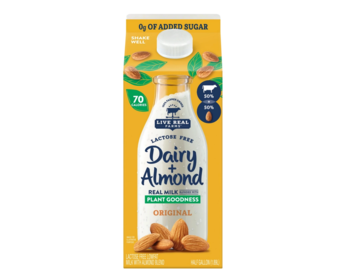
As the food industry followed American consumers into better-for-you eating, and Silicon Valley turned dietary consumption – like everything else – into a digital pursuit, the nation’s breadbasket lost relevance to the coasts.
But lately, entrepreneurs and big companies alike in Flyover Country are demonstrating they’re every bit as inventive as their counterparts on the seaboards. And they’re collectively determined to reassert the region’s rightful place as the font of innovation in agricultural technology and food development as well as in the more traditional pursuits of harvesting and processing foodstuffs.
Consider Matt Crisp, CEO of Benson Hill, the startup based in St. Louis that now is looking at a valuation of more than $1 billion after its pioneering scientific work on creating better plant proteins.
Also an outfit in Chicago called Bigger Table, a coalition of food and beverage companies that are coming together to source donated ingredients and manufacture them into healthy products that are given directly to food banks and food pantries around the area.
And Journey Foods, whose Austin-based founder, Rianna Lynn, is leveraging data to help food companies effectively manage and launch products and ingredients.
Still another Flyover Country innovator to consider these days is Dairy Farmers of America. If ever there were a traditional group, the Kansas City-based cooperative of 7,500 dairy farmers might just be it. But look at what DFA is doing nowadays, after swooping in last year to acquire the carcass of America’s largest milk producer, Dean Foods.
By far the nation’s largest milk producer, DFA has also become first to market with a hybrid product that combines milk and plant-based milk analogs into a new type of beverage meant to appeal to America’s growing class of “flexitarians.”
Now in its second market test, in New England, after DFA’s initial test in Minneapolis, the new brand called Live Real Farms offers five SKUs of “real milk blended with plant goodness.” Each of the beverages is at least 50 percent milk and is combined with either almond or oat ingredients.
The gambit is a huge one for DFA, which sees big reasons for hope that Live Real Farms could be a significant help in finally reversing the decades-long decline in fluid-milk sales.
“As we saw the flexitarian trend grow, it was important from our perspective to find ways to deliver modern beverages that get dairy to consumers,” said Rachel Kyllo, senior vice president of marketing and innovation for DFA dairy brands. She told me that about one-third of US consumers describe themselves as flexitarians. “We believed this product could be the best of both worlds.”
Of course, Live Real Farms also is heavily based on a brand and product narrative that weaves a sustainability ethos with Americans’ growing concerns about consuming locally originated products.
“This is a brand that could connect brand-to-table,” Kyllo said. “The back story for Live Real Farms is very much about ‘farmed from the heart,’ about working for a cause we believe in and being passionate about things rooted in goodness and honesty. It’s America’s story that goes along with Live Real Farms. And it’s very resonant with our target audience.”
It helps that, unlike most other mainstream beverages in the U.S., fluid milk remains highly fragmented on a regional basis, for a number of reasons. So, not only are there no real national brands for regular milk, there’s a predisposition by American consumers to believe that their local milk brand indeed is already “farm-to-table.”
Some handicappers believe DFA may succeed with its trailblazing hybrid line. “The dairy category has lagged many of the other beverage categories in innovation, so these products may be a welcome development for some consumers,” Gary Hemphill, managing director of research for Beverage Marketing Corporation consultants, told me. “The knock on some plant-based dairy alternatives has been limited protein content, and products like this may be the answer to that.”
Read the rest of this piece at Flyover Coalition.
Dale Buss is founder and executive director of The Flyover Coalition, a not-for-profit organization aimed at helping revitalize and promote the economy, companies and people of the region between the Appalachians and Rockies, the Gulf Coast and the Great Lakes. He is a long-time author, journalist, and magazine and newspaper editor, and contributor to Chief Executive, Forbes, the Wall Street Journal, the New York Times and many other publications. Buss is a Wisconsin native who lives in Michigan and has also lived in Texas, Pennsylvania and Florida.












